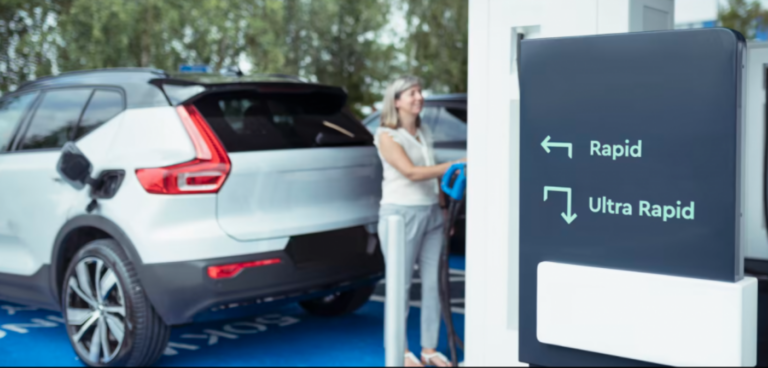The cost to use a publicly accessible charger to charge an electric car on a pay-as-you-go basis has gone up by 42%, or 18.75p per kilowatt hour, since May this year, to an average of 63.29p per kilowatt hour, according to new data from insurance company RAC.
The price increase has been caused by drastic rises in the costs of wholesale energy. This means it will now cost, on average, £32.41 to charge a family-sized electric car with a 64kWh battery to 80% – an increase of £9.60 since May, and £13.59 since this time last year.
Ultra-rapid chargers have, on average, become 25% more expensive to use, by 12.97p per kilowatt hour, since May – with current costs being 63.94p. An 80% charge will now cost £32.74, up from £26.10 in May (25%) and £17.51 in September 2021 (87% increase).
RAC figures show that using a publicly available rapid or ultra-rapid charger will now cost around 18p per mile for electricity, up from 13p in May. Petrol’s equivalent cost is 19p, with diesel’s being 21p.
According to RAC, many current electric car drivers will predominantly charge at home to cut costs. Under the Energy Price Guarantee, the cost of charging an average-sized EV (that is driven efficiently) to 80% at home will be £17.87.
The insurance provider warns that this means those who are unable to charge at home will risk paying a premium to run electric vehicles (EVs).
The RAC is also concerned that the high cost of using a public rapid charger will disincentivise people from switching to EVs in the future.
While the government’s Energy Bill Relief Scheme announced last week should help prevent charging costs from continuing to rise, it remains the case that drivers using public chargers will pay 20% in VAT for electricity they buy, compared to an at-home rate of 5%.
In light of this, RAC has publicly backed the FairCharge campaign, which calls for both rates to be set at 5%, thus reducing the cost of an 80% rapid charge by 7.91p to 55.38p per kWh, and an ultra-rapid charge by 7.99p to 55.95p per kWh.
Simon Williams, EV spokesperson at RAC, said: “For those that have already made the switch to an electric car or are thinking of doing so, it remains the case that charging away from home costs less than refuelling a petrol or diesel car, but these figures show that the gap is narrowing as a result of the enormous increases in the cost of electricity.
“The Energy Price Guarantee benefits those drivers who are fortunate enough to charge their cars at home, but for those that rely on the public charging network – including those without driveways – it’s a much bleaker picture right now.
“The fact wholesale energy will prices be capped for six months should lead to some price reductions by charge point operators in the coming weeks – but what EV drivers don’t want to see is operators having to hike their charges next Spring if wholesale costs keep climbing.
“The government is largely relying on the private sector to do the heavy lifting when it comes to getting the country’s electric car charging infrastructure up to the scale and standard it needs to be to allow for mass adoption of electric vehicles.
“Last week, charge point operators got behind the RAC-backed FairCharge campaign in calling for the government to end the inequity that exists between drivers who can charge at home and those that cannot, by cutting the 20% VAT charged on electricity at public chargers to match the 5% domestic rate.”





